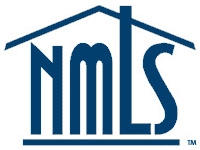What Is a Hard Money Loan?
What Is a Hard Money Loan?
Hard money loans are short-term secured loans that use the property you’re purchasing as collateral. You won’t find one from your bank. Hard money loans are offered by alternative real estate lenders such as individual investors and private lenders that don’t use borrower credit scores and other individual factors to underwrite a loan. Private lenders base their decision on the value and equity of the property. You will find the underwriting process much easier to get a hard money loan. However, this type of loan comes with some risks and isn’t the best option for everyone.
Investors that often use hard money loans include:
- House flippers: House flippers buy fixer-uppers to rehab them in hopes of selling them at a hefty profit. House flipper investors use hard money loans for the real estate purchase price and some of the property repair costs.
- Rental property investors: Investors in rental properties might rely on hard money loans as a quick source of cash to finance a deal and when the process to secure a real estate loan from a traditional lender will take too long.
- Real estate investors that can’t qualify for traditional financing.
Benefits of Hard Money Loans
Hard money loans provide borrowers with several benefits:
- Hard money loans close much faster than a traditional real estate loan does. A hard money loan might take just a few days to fund.
- Hard money lenders’ loan underwriting process is much simpler and easier than lenders offering traditional loans. Hard money lenders place a much greater weight on the value and equity of the property used as collateral than on a borrower’s finances – tax returns, bank statements, cash on hand, credit history.
- Hard money lenders pay less attention to a borrower’s credit score and debt-to-income ratio. The best hard lenders don’t require or use individual financial information.That’s because hard money lenders aren’t required to follow the same regulations that traditional lenders are.
For these reasons, a hard money loan can be a compelling alternative for real estate investors who are unable to qualify for a traditional residential mortgage loan.
- No borrower principal credit check
- No borrower principal income statements
- No borrower principal bank statements
- No prepayment penalties
- No third party appraisal cost
- No application fee
- No underwriting fee
- No document preparation fee
- No hidden junk fees
Risks of Hard Money Loans
While hard money investment loans come with many benefits, a borrower should consider the risks. Among them are:
- Interest rates are typically higher. Lender is assuming more risk.
- Higher down payment requirement than a traditional lender.
- Shorter loan term of +/- one year.
- Hard money loans are an expensive way to borrow money.
Should You Get a Hard Money Loan?
Deciding whether a hard money loan is right for you depends on your situation.
As with any debt, be sure to have a plan for paying it off before you borrow. You certainly don’t want to lose your property (the loan’s collateral) because you weren’t able to keep up with the monthly payments. In addition to losing the asset you put forward as collateral, defaulting on a hard money loan can result in major harm to your reputation. Both of these outcomes will leave you worse off financially than you were in the first place and will make it much harder to borrow in the future.
When to Avoid Hard Money Loans.
You should explore alternatives to a hard money loan when:
- You’re uneasy about repaying the hard money loan
- Uncertain that the hard money loan can be repaid in a short period of time.
- You have above average credit and should qualify for a traditional low rate loan.
Alternatives to hard money loans include traditional mortgages, home equity loans, friends-and-family loans or financing from the property’s seller.
How to Get a Hard Money Loan
Finding a hard money lender isn’t difficult, but you don’t want to borrow money from just anyone. It’s important to take into account factors such as the lender’s reputation and interest rates. You might ask a trusted real estate agent, investor mortgage broker or a fellow house flipper for recommendations.
Once you’ve identified the right hard money lender (SFR Capital), be prepared to:
- Provide a +/-30% down payment of the property purchase price.
- Hire an experienced real estate attorney to review the loan documents, if needed
- Make a plan for repaying the loan.
Summary of Using a Hard Loan
Just as with any loan, review the pros and cons of a hard money loan before you commit to borrowing. You might find that a hard money loan is the best option for borrowing, or you might decide to pursue an alternative.
New to Hard Loans
We recommend that you find a successful mentor who has bought, rehabbed, sold, refinanced and rented a few properties already and find a way to collaborate and work with them. Take advantage of learning from their experience and avoid costly mistakes.
SFR Cap 2024














